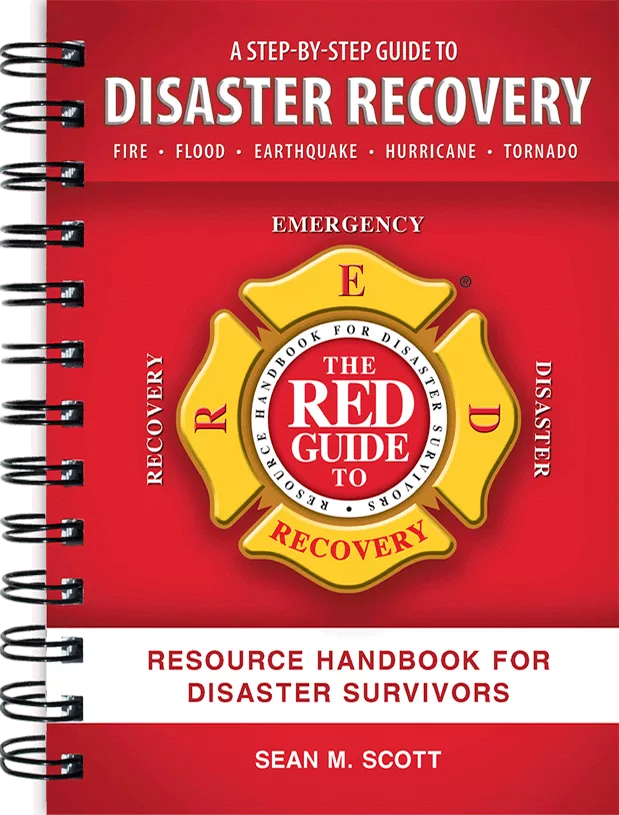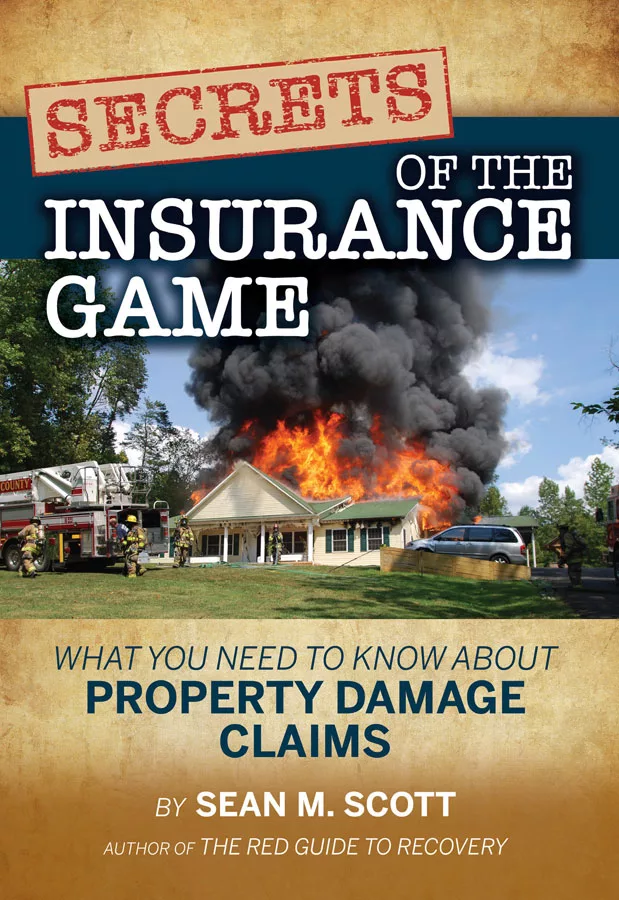From Independent to Franchise: A View from Both Sides of the Aisle
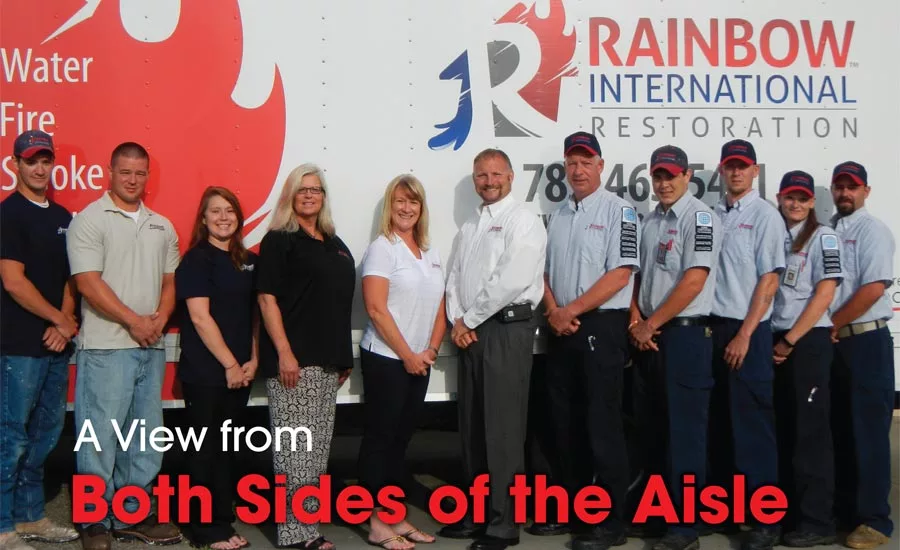
Photos courtesy of Rainbow Int’l of East Central Kansas
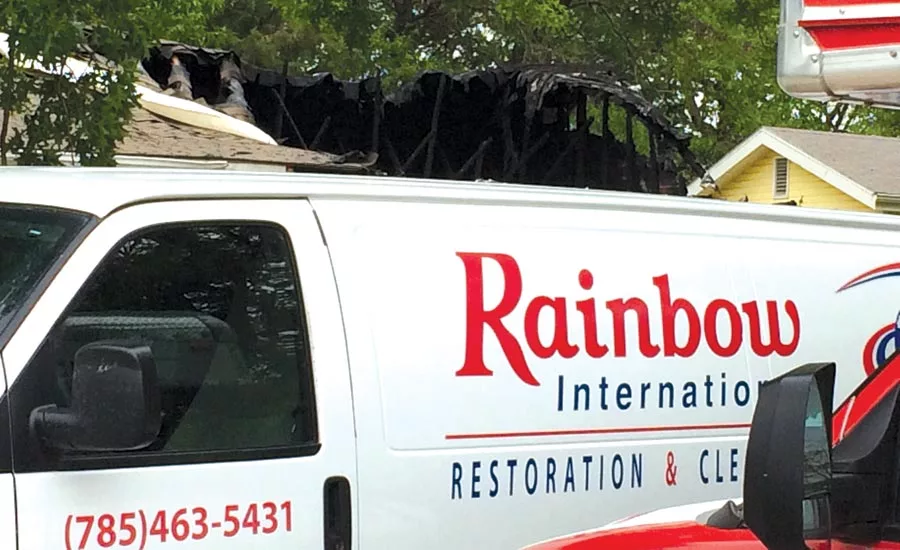
Photos courtesy of Rainbow Int’l of East Central Kansas
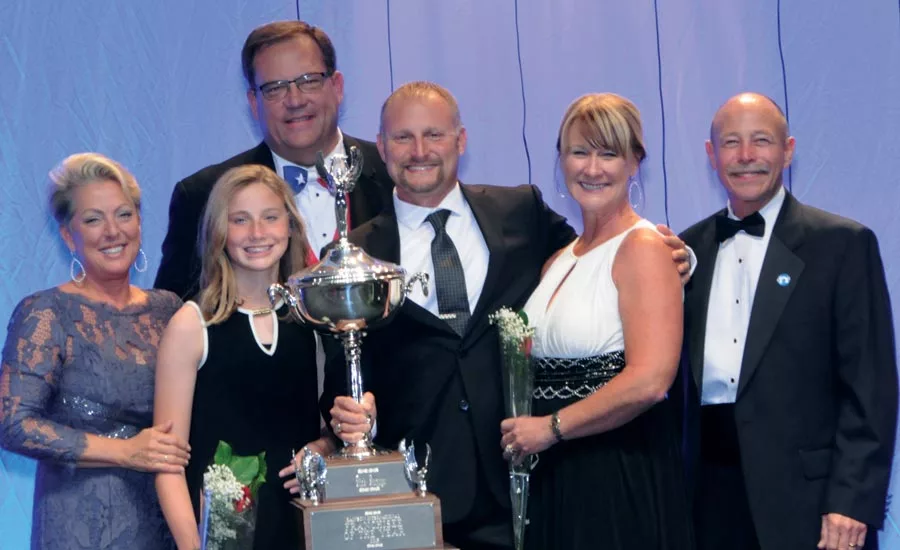
Photos courtesy of Rainbow Int’l of East Central Kansas
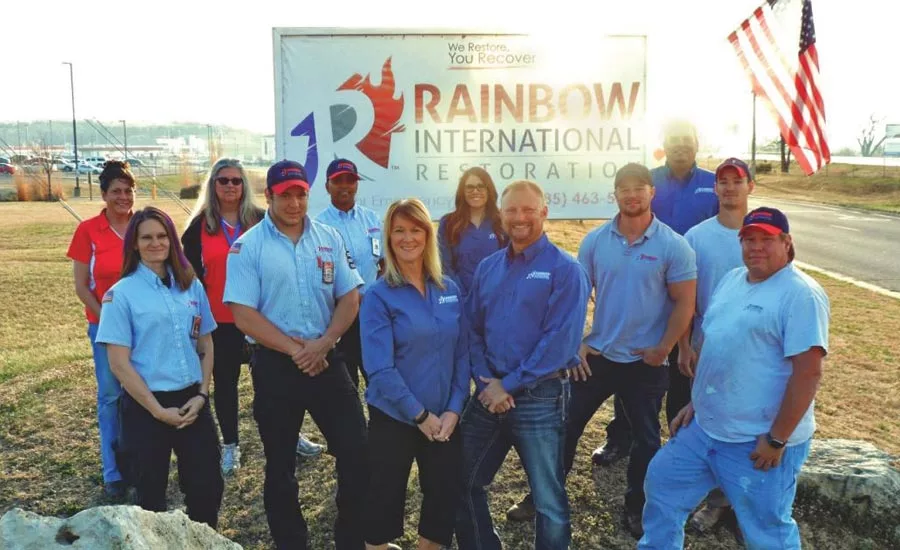
Photos courtesy of Rainbow Int’l of East Central Kansas
In just the few years I’ve been with R&R, I’ve heard countless stories of how people found their way to the restoration industry. Some started as carpet cleaners, some as contractors, others are in it because they are carrying on a family business, some just needed a job and this is where they landed, and still others discovered this niche industry as they looked for ways to serve others.
For many, the journey is not exactly a straight path or road, let alone a highway. There are twists, turns, roadblocks, and frustrations that eventually lead to the industry we are blessed to call “home.” Some call an independent company home – others go the franchise route. But together, our end goal remains the same: restore properties and lives through quality work and impeccable communication with everyone involved in every project.
Rick Swango has experienced both the franchise and independent side of the industry, but he didn’t get his start in restoration. In 2002, fresh out of the U.S. Army, Rick opened a janitorial company with not much more than $50 in his pocket to get the minimum insurance he needed to start working. His first job was cleaning the windows of a brand new hotel in town, inside and out, which he did completely on his own.
Six or seven years later, Rick bought his first truck mount unit and started doing more carpet cleaning. As water extraction jobs came in, he realized there must be something missing from the drying puzzle, and started researching how to dry out spaces. That’s when Jon Don connected him with the IICRC, and Rick started getting the training and certifications he needed to do water damage mitigation. However, he felt he quickly reached a ceiling.
“I couldn’t get beyond $300,000 to $350,000 a year and I was very frustrated and knew I needed a better vehicle to grow,” Rick said. “That’s when I looked around town and realized a lot of businesses were taking on franchise opportunities and the options in my area were getting snatched up. If I didn’t react quickly, I knew I was going to be in trouble.”
Finding Growth
When Rick was trying to figure out how to grow his business, he left no stone unturned. In all, he interviewed 22 different franchise opportunities doing everything from carpet cleaning to mitigation. One major franchise never even returned his call; another treated him like a small fish with zero potential. Other options just simply didn’t feel right. One did.
“From the first conversation I had with Rainbow International, I just knew it was something I wanted to be part of. I literally put every single penny we had into making this happen. My wife, Kellie, and I, put it all on the line,” Rick said.
Just six months after officially opening his franchise, Rainbow International of East Central Kansas, profits were up 100 percent. The very next year, they grew another 100 percent, doing around $1.2 million in work. Every year since, they’ve added about $400,000 to the business. Today, Rick’s company employs 15 people full time, plus others part time or as subcontractors. He credits franchise systems for getting him, and his company, to where they are today – covering almost one third of the state of Kansas, serving 22 and a half counties.
“I would say to any franchise owner, no matter what brand you go with, following the systems and working 120 to 150 percent will make you successful,” Rick said. More specifically, he credits good software, like Dash, and HR systems for helping establish a firm foundation for the company.
“Make sure you’re using all your computer programs as they’re meant to be used. It’s the whole concept of putting good data in, and getting good data out,” he explained.
Owning a franchise does not mean being handed money on a silver platter. Even with the help of a franchise network, owners have to run their own business wisely. After several years of explosive growth, Rick and Kellie actually pumped the brakes a bit to do a little reassessing and realignment. They used that one year window to make sure they established a good foundation for handling all the growth. This included doing some new hiring, making sure equipment needs were in check, establishing a good training system, ensuring finances were well in order, and creating a strong leadership infrastructure to foster future growth.
Program Work
It’s hard to do any sort of article these days without addressing program work. Contractors are always trying to find new ways to boost scores, increase profit margins, and so on while working with TPA’s, and that starts with having a good system in place for handling that type of work.
“Whoever has the strictest requirements is the platform we use for all of it,” Rick explained. “That’s literally how we run our business. We treat them all with that same discipline. Through Dash, compliance tasks can be modified to make them as strict as possible.”
Plus, there is a chain through which job files travel. Once scoured and approved by the project manager, Rick’s assistant thoroughly combs through them for any problems. Then, no job is finalized before it is spot-checked by Rick or Kellie. For now, they are the only two in the office who can close a job, although Rick is well aware that will have to change down the road.
This way of managing program work has landed Rick as a Contractor Connection Top Performer. And while we are talking about awards, they’ve also earned:
- 2013 Rainbow International Rookie Of The Year
- 2013 Rainbow International Excellence in Mentoring
- 2015 Rainbow International Franchisee Of The Month, September
- 2015 Rainbow International Top Gun Franchisee (AKA Among the top 10% of all the franchises)
- 2015 Rainbow International Franchisee of the Year
- 2016 Rainbow International Top Gun Franchisee
- 2016 Rainbow International Franchisee of The Month, July
Inspirational Leadership & Team Building
Rick believes strongly in hiring and supporting fellow veterans. In fact, more than half of his employees are veterans, and another 10 percent or more are family of veterans or those on active duty.
“We try to hire only the best employees. You can’t always train hard work ethic and manners; but if you can find it naturally in a prospect then you can train them in a trade,” he said. “I would rather work with someone who has been in the trenches, that can handle the pressure, and is committed to being there every day than someone who is unproven.”
At the core of his business lie the Soldier Creed and the Dwyer Group’s Code of Ethics. There wasn’t space to include them here, but I heartily encourage you to Google and read both. Below is a snippet from the NCO Creed. Imagine running your company with this code as the backbone.
I am an American Soldier.
I am a warrior and a member of a team.
I serve the people of the United States, and live the Army Values.
I will always place the mission first.
I will never accept defeat.
I will never quit.
I will never leave a fallen comrade.
I am disciplined, physically and mentally tough, trained and proficient in my warrior tasks and drills.
I always maintain my arms, my equipment and myself.
I am an expert and I am a professional.
I stand ready to deploy, engage, and destroy, the enemies of the United States of America in close combat.
I am a guardian of freedom and the American way of life.
I am an American Soldier.
“The military taught me to lead from the front, so I don’t ask any employee to do anything I wouldn’t do myself,” Rick said. “Any system we put in place, I physically work through the issues myself and try to make it fool-proof.”
Rick and Kellie have worked hard to foster a family-oriented atmosphere. Anytime an employee has something at their home they need help with, the team is there to make it happen. They have potlucks, shrimp boils, and more. Just as they serve their customers, Rick’s team serves each other. From techs to project managers, Rick understands every person is vital to the company’s success.
Plus, he doesn’t believe in using hiring websites or taking out ads. Rick actively recruits in his community. He finds people working elsewhere, who have impeccable customer service skills, and starts talking with them. In time, they start asking about his company, and voila – soon, they work for Rainbow International of East Central Kansas.
Do It All Over Again
When I asked Rick if he would play his cards a different way if he did it all again or stay an independent company, he gave me an adamant, immediate no. While he understands many people see the downsides of paying royalties and following certain franchise protocols, for Rick, the bigger the check he sends to the franchise, the more money there is going into his own bank account.
“I owe it all to franchising,” he said. “If I could do it all over again, I would have done it much sooner.”
For Rick, this is only the beginning. With his business doing well, he’s now looking to get more involved in mentoring fellow contractors and taking on larger roles in organizations. Just like the leaders of many restoration companies across the U.S., independent or franchise, he believes in the value of servant leadership and customer service. And, like many of you reading this, Rick gives all the credit and glory to God.
Looking for a reprint of this article?
From high-res PDFs to custom plaques, order your copy today!






